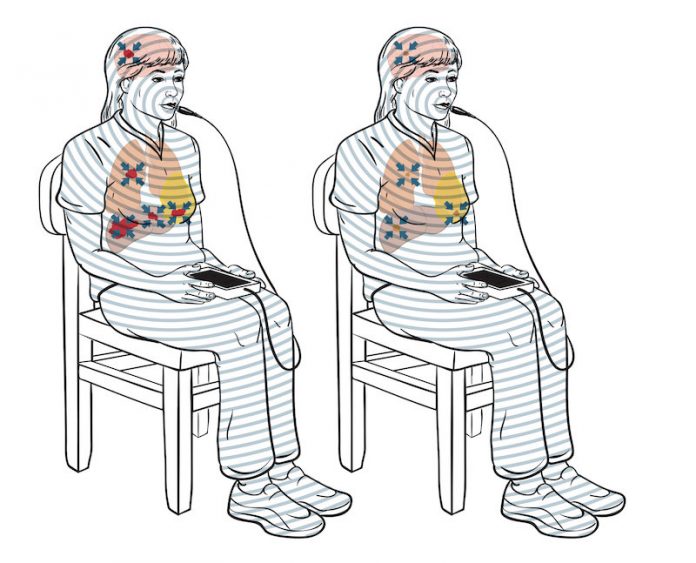
In a new study, researchers found that a new treatment using non-thermal radio waves could block the growth of liver cancer cells anywhere in the body.
The new therapy doesn’t damage healthy cells.
The research was conducted by a team from Wake Forest School of Medicine.
In the study, the team delivered levels of radio frequencies to mice that had hepatocellular carcinoma (HCC), the most common type of liver cancer.
The radio frequencies were the same as those delivered to patients with HCC in Europe, where the device has been approved for use in people.
The frequency levels were low and safe and actually lower than those generated by holding a cell phone close to the ear.
The device could deliver cancer-specific, amplitude-modulated radiofrequency electromagnetic fields (AM RF EMF) programmed specifically for HCC.
The team found that the AM RF EMF activated a calcium channel on the surface of HCC tumor cells but not on healthy cells.
The influx of calcium could stop the growth of HCC cells and shrink the tumors in some cases.
Moreover, this effect was the same even if cancer had spread to other parts of the body.
In the future, the team will identify the exact signaling cascade within the tumor cell that leads to the anti-cancer effects.
The team also has done a study using the same technology to stop breast cancer cells.
The treatment is approved for use in patients in Europe. It consists of a hand-held device about the size of a VHS tape cassette that emits radio frequencies via a spoon-shaped element that is placed on the patient’s tongue.
The treatment is administered at the patient’s home three times a day for one hour.
The frequencies used are specific to the patient’s type of cancer as identified through tumor biopsies or blood work.
The device is licensed to TheraBionic Inc. It has been approved by the European Notified Body, the equivalent of the U.S. FDA. It is currently under review by the FDA.
The lead author of the study is Boris Pasche, M.D., Ph.D., chair of cancer biology.
The study is published in the journal EBioMedicine.
Copyright © 2019 Knowridge Science Report. All rights reserved.



